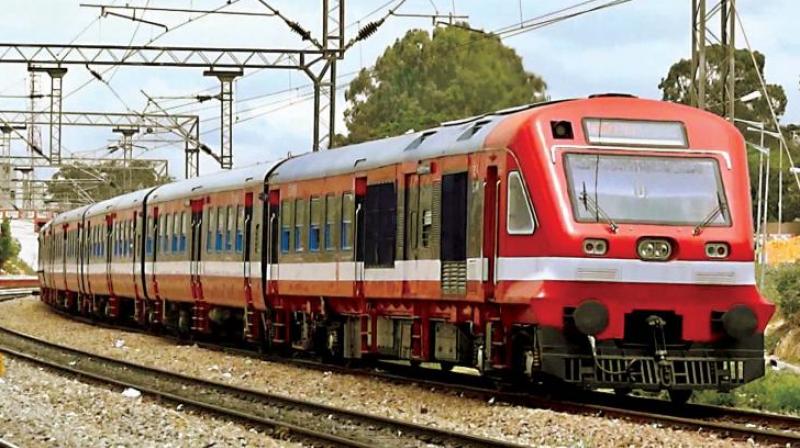Bidar-Kalaburagi rail line ready after 16 years
Trial runs are on under the supervision of officials from the office of the railway safety department, the sources said.

Kalaburagi: Hectic preparations are on to dedicate the vital Bidar-Kalaburagi railway line to the nation. Work on the project began one-and-a-half decade ago.
According to sources, Prime Minister Narendra Modi is likely to inaugurate the 110-km railway line, which reduces the distance between Delhi and southern states by 380 km. It will also help develop industrial and tourism sectors in the Hyderabad-Karnataka region.
The PM, who is scheduled to take part in programmes at Dharmasthala and Bengaluru on October 29, will fly to Bidar to inaugurate the railway line. “The Pirme Minister’s programme has almost been finalised, the official announcement in this regard will be made in a day or two,” according to sources.
“Trial runs are on under the supervision of officials from the office of the railway safety department,” the sources said.
The then Railway Minister Bangaru Lakshman laid the foundation stone for the line in 2000. He had promised to commission it in five years. Initially, the project was estimated to cost Rs 369.7 crore. But the project cost shot up in view of the delay in its implementation owing to meagre allocation of funds in the budget. In 2000-01, the Railways set aside Rs 5 crore. In 2001-02, the outlay was Rs 10 crore, in 2002-2003, it was Rs 15 crore and in 2003-2004, it was Rs 15 crore. In the 2004-05 budget, Rs 10 crore was earmarked.
Now, the project cost has been estimated at Rs 1,542 crore. The second reason for the delay was land was not made available from the Gulbarga end. The land acquisition process from the Bidar end progressed well. As a result, the 53-km Bidar-Humnabad line, which is part of the Bidar-Gulbarga line, was commissioned three years ago. Congress leader Mallikarjun Kharge inaugurated the Push-Pull train service between Bidar and Humnabad in 2013. But land acquisition in Gulbarga got delayed as farmers went to court seeking higher compensation. The project gained momentum after Mr Kharge became the Railway Minister. He saw to it that funds were provided for the speedy completion of the project.
The project faced a problem at the 1.5-km underground tunnel at Margutti. At the end of the tunnel on the Kalaburagi side, the railway authorities came across soft soil, which forced the workers to stop drilling. It posed a serious health hazard to the workers involved in drilling operations. Because of heavy rains last year, work was stopped as water entered the tunnel.

